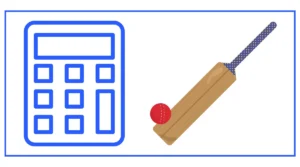This fish weight calculator helps you find the weight in pounds. Enter the fish’s length and girth, and choose the fish shape.
The results depend on your ish shape ( Trout, salmon, sunfish, etc.).
You might be interested in hiking, kiteboarding, or scuba weight calculators.
Understanding the Basics: Length, Girth, and Weight
Before we dive into the specifics of using a fish weight calculator, it’s essential to understand the key measurements involved in estimating a fish’s weight:
Length
The length of a fish is typically measured from the tip of its snout to the end of its tail. This measurement is fundamental in most weight estimation formulas. To measure length accurately:
- Lay the fish flat on a measuring board or tape measure.
- Extend the fish to its full length, making sure it’s straight.
- Measure from the tip of the lower jaw or nose to the end of the tail fin.
Girth
Girth refers to the circumference of the fish at its widest point, usually just behind the gills. This measurement helps account for the fish’s body shape and provides a more accurate weight estimate. To measure girth:
- Wrap a flexible measuring tape around the thickest part of the fish’s body.
- Ensure the tape is snug but not too tight.
- Record the measurement in inches or centimeters.
Weight
The actual weight of a fish is typically measured in pounds or kilograms. While a scale provides the most accurate weight, estimation formulas can give you a close approximation based on length and girth measurements.
How to Use a Fish Weight Calculator?
Using a fish weight calculator is a straightforward process that can be done in the field or at home. Here’s a step-by-step guide:
- Measure the length of your fish as described above.
- If possible, measure the girth of the fish.
- Identify the species of fish you’ve caught.
- Enter these measurements into the calculator.
- Select the appropriate fish species or shape from the provided options.
- Click the “Calculate” button to get an estimated weight.
Many online fish weight calculators are available, and some even come as smartphone apps, making it easy to estimate weights while on the go.
The Science Behind Fish Weight Estimation
Fish weight calculators use mathematical formulas to estimate weight based on length and girth measurements. These formulas vary depending on the species of fish, as different species have different body shapes and density characteristics.
Common Formulas Used in Fish Weight Calculators
- For trout, bass, and many other species:
Weight (lbs) = (Length x Girth²) / 800 - For salmon and some other species:
Weight (lbs) = (Length x Girth²) / 900 - For walleye:
Weight (lbs) = Length³ / 3500 - For pike and muskie:
Weight (lbs) = Length³ / 2700
These formulas provide a good approximation of fish weight, but it’s important to remember that they are estimates and may not be 100% accurate for every individual fish.
Factors Affecting Fish Weight Estimation
Several factors can influence the accuracy of fish weight estimation:
- Species variation: Different fish species have varying body shapes and densities, which can affect weight calculations.
- Seasonal changes: Fish may weigh more or less depending on the season, especially before and after spawning.
- Age and maturity: Older fish may have different length-to-weight ratios compared to younger fish of the same species.
- Environmental factors: Water temperature, food availability, and habitat can all influence a fish’s weight relative to its length.
- Measurement accuracy: Precise length and girth measurements are crucial for accurate weight estimation.
Benefits of Using a Fish Weight Calculator
Employing a fish weight calculator offers several advantages for anglers and researchers alike:
- Convenience: Estimate weights without carrying a bulky scale on your fishing trips.
- Conservation: Quickly assess a fish’s weight without removing it from the water, reducing stress on the fish if you plan to release it.
- Record keeping: Maintain accurate logs of your catches, even when a scale isn’t available.
- Fishing regulations: Ensure compliance with size and weight limits for different fish species.
- Catch comparison: Compare the estimated weights of fish caught in different locations or at different times.
- Educational value: Learn about the relationship between a fish’s length, girth, and weight.
Tips for Accurate Fish Weight Estimation
To get the most accurate results from your fish weight calculator, consider these tips:
- Use the right formula: Make sure you’re using the appropriate formula for the species of fish you’ve caught.
- Measure carefully: Take accurate length and girth measurements, following proper techniques.
- Consider using multiple calculators: Compare results from different calculators to get a range of estimates.
- Account for seasonal variations: Be aware that fish weights may vary throughout the year.
- Practice with known weights: Test the calculator’s accuracy by comparing its estimates to actual weights measured on a scale.
- Round your measurements: When in doubt, round down to the nearest half-inch for more conservative estimates.
Fish Weight Calculator: A Valuable Tool for Conservation
Beyond its usefulness for anglers, fish weight calculators play a significant role in conservation efforts and fisheries management:
Population Studies
Researchers use weight estimation techniques to study fish populations without the need to remove large numbers of fish from their habitat. This allows for non-invasive monitoring of fish health and growth rates.
Catch and Release Programs
For catch and release fishing, weight calculators enable anglers to record their catches without unnecessarily stressing the fish. This is particularly important for species that are sensitive to handling or are protected.
Fisheries Management
Fisheries managers use weight estimation data to assess the health of fish populations, set appropriate catch limits, and make informed decisions about habitat management.
Limitations of Fish Weight Calculators
While fish weight calculators are useful tools, it’s important to understand their limitations:
- Estimates, not exact measurements: Calculator results are approximations and may not be as accurate as a physical scale.
- Species-specific accuracy: Some calculators may be more accurate for certain species than others.
- Individual variation: Fish of the same species and length can have different weights due to various factors.
- User error: Inaccurate measurements can lead to incorrect weight estimates.
Comparing Fish Weight Calculators to Other Methods
Fish weight calculators are just one method of estimating fish weight. Let’s compare them to other common techniques:
Physical Scales
Pros:
- Provide exact weight measurements
- Useful for tournament fishing where precise weights are required
Cons:
- Can be bulky and inconvenient to carry
- May stress fish if not used quickly and properly
Length-Weight Charts
Pros:
- Simple to use
- Don’t require girth measurements
Cons:
- Less accurate than calculators that incorporate girth
- May not account for seasonal variations
Visual Estimation
Pros:
- Requires no equipment
- Can be done quickly
Cons:
- Highly subjective and often inaccurate
- Requires significant experience to make reasonable estimates
Practical Applications
Fish weight calculators have numerous practical applications in both recreational fishing and professional settings:
Recreational Fishing
- Personal record keeping: Track the weights of your catches over time.
- Fishing competitions: Estimate weights when official weigh-ins aren’t possible.
- Catch and release: Minimize handling time while still recording important data.
Professional and Research Applications
- Fisheries research: Conduct large-scale population studies without removing fish from their habitat.
- Aquaculture: Monitor growth rates in fish farming operations.
- Environmental impact assessments: Evaluate the health of fish populations in response to environmental changes.
Frequently Asked Questions
To address common queries about fish weight calculators, here are some frequently asked questions:
How accurate are fish weight calculators?
When used correctly, fish weight calculators can provide estimates within 10-15% of the actual weight for many species. However, accuracy may vary depending on the species and individual fish characteristics.
Can I use a fish weight calculator for any type of fish?
While many calculators work for a wide range of species, some are designed for specific types of fish. It’s best to use a calculator that’s calibrated for the species you’re measuring or one that allows you to select the fish type.
Do I need both length and girth measurements?
For the most accurate estimates, both length and girth measurements are ideal. However, some calculators can estimate weight based on length alone if girth measurement isn’t possible.
How do seasonal changes affect fish weight calculations?
Fish weights can vary seasonally due to factors like spawning and food availability. Some advanced calculators may account for seasonal variations, but it’s important to be aware that estimates may be less accurate during certain times of the year.





